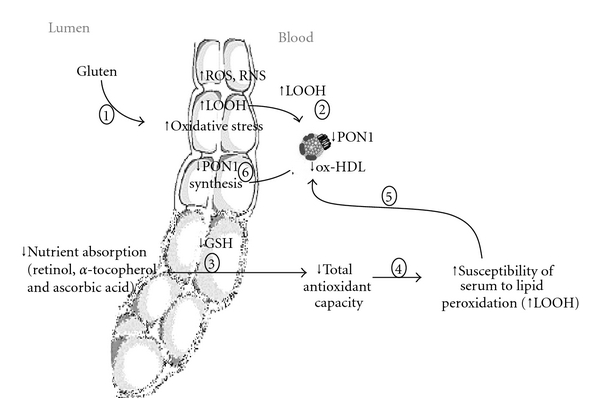Figure 3.

Possible molecular mechanisms involved in increased lipid peroxidation and decreased PON1 activity in celiac disease. Gluten ingestion induces an increased oxidative stress, due to overproduction of free radicals (ROS and RNS) (1). The higher levels of ROS can trigger lipid peroxidation (LOOH) in intestinal mucosa and blood (2). Oxidative stress could be favored by lower serum antioxidant capacity resulting from lower absorption of dietary antioxidants due to mucosal damage (3). All the aforementioned changes could explain the higher susceptibility of serum to lipid peroxidation (4) and the compositional alterations of HDL with consequent decrease of PON1 activities (5). In addition to the inhibition exerted by lipid peroxidation products, the lower PON1 activity could be mediated by inhibition of PON1 synthesis from gastrointestinal cells (6).
